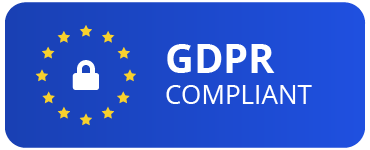Massive amounts of interactions with family, friends and colleagues take place via social media such as Facebook, Instagram, Twitter and LinkedIn. By uploading, posting, tweeting, sharing, liking and commenting, we accumulate a large amount of digital information and we leave behind a unique ‘digital footprint’ – a record of our online activity.
What happens to those accounts, and the information contained within them, when we die?
Each social media platform has slightly different rules and policies regarding what it does with accounts when its users pass away. It often depends on the wishes of the user and/or their immediate family. You may have particular wishes in respect of your digital asset or want some information to be erased/retained or certain accounts shut down and others memorialised. It is important to think about your own wishes, review each platform’s policies and take appropriate steps such as providing instructions to your loved ones.
You can do this in your Will and appoint digital executors, different to your estate executors.
Facebook has changed its terms and conditions and now allows you to appoint a ‘legacy contact’, such as a family member or friend, who will be able to look after your memorialised account or choose to have your account permanently deleted. Facebook will memorialise a user’s account if they discover or are informed that the user has died. Accounts that don’t have a legacy contact cannot be managed or changed after they have been memorialised.
A memorialised Facebook account will show the word ‘Remembering’ in front of the user’s name on the profile and, depending on the privacy settings, can allow friends to share memories and tributes on the memorialised timeline.
A legacy contact can accept friend requests on behalf of a memorialised account, pin a tribute post to the profile and change the profile picture and cover photo. If the memorialised account has an area for tributes, a legacy contact can decide who can see and post tributes. A legacy contact cannot log in to view any private messages or remove past posts, photos, or friends.
You can have your account permanently deleted in the event of your death so when someone informs Facebook that you have passed away, your messages, photos, posts, comments, reactions and information will be immediately and permanently removed.
Instagram does not have the legacy contact feature but, like Facebook, accounts can either be memorialised or removed upon request by an immediate family member or personal representative i.e. an executor.
A deceased Twitter user’s immediate family member or personal representative can ask for the account to be deactivated.
Twitter’s Terms of Service state that you cannot transfer your account to another person (because it’s a non-assignable license) so will not provide account access to anyone.
If you do not make a plan for your Twitter account, your account will be automatically deleted after 6 months of inactivity. So, you would either need to plan for it to be deleted, or leave instructions with someone about what to do with the account in the event of your passing.
LinkedIn also allows immediate family members or the personal representatives of a deceased user to request to memorialise or close the account.
This will display a memorialised badge as a symbol of remembrance. Access to the account is locked.
If you are thinking of asking someone to access your account after your death, sharing your password is a violation of LinkedIn’s User Agreement and grounds for deleting your account. Sharing any passwords or log in details during your lifetime is potentially very risky.
Many of us associate ‘estate planning’ with our other assets such as bank accounts or properties, but digital estate planning is important. It can be valuable and extremely helpful for the family and friends that you leave behind to be provided with instructions for your accounts, digital assets and social media profiles.
Even if you are in good health, it is sensible to plan-ahead, for the peace of mind of knowing that loved ones will have one less thing to worry about and manage at an already stressful and upsetting time.
There are many social media platforms and it is important to familiarise yourself with all the user agreements for your digital accounts to ensure that your assets and data are protected even after you have passed away.
For free advice to help you make the right decisions, please contact us
+44 7939 578 631
admin@excelsiorworldwideltd.com



